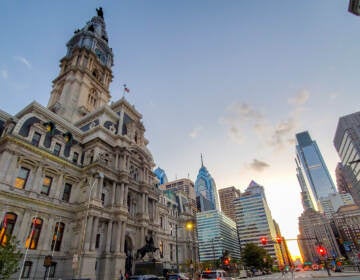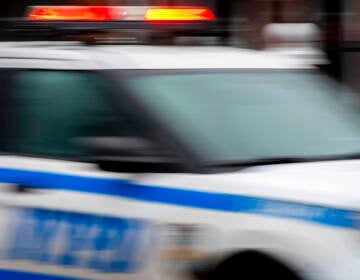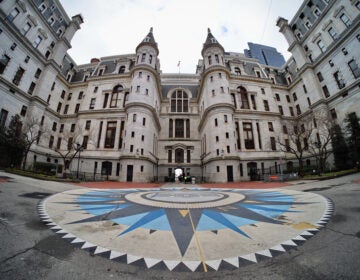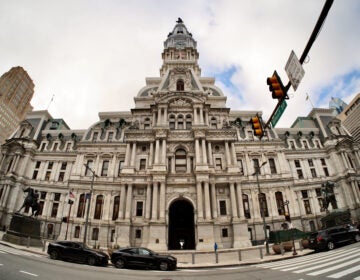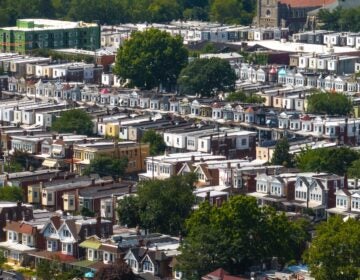Philly leaders want to ban ski masks to prevent gun violence; opponents say it’s an intrusion on Black youth
Philadelphia City Council members want to ban ski masks in public places following a new SEPTA policy. Experts say it could have harmful consequences for Black youth.
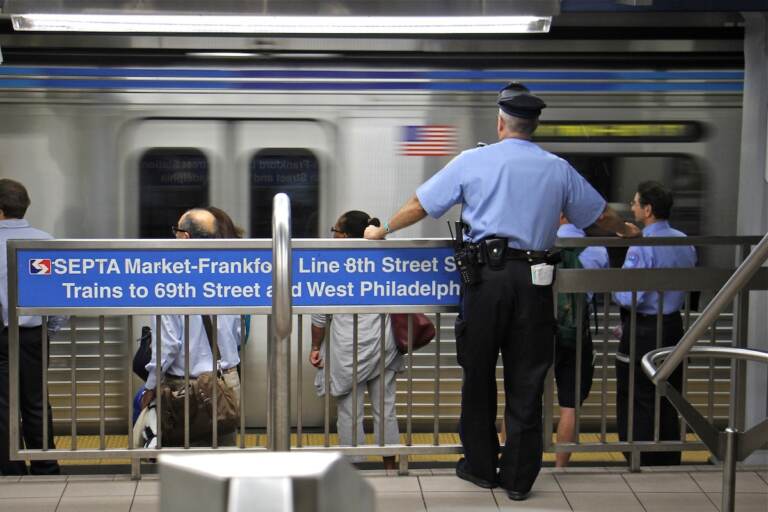
A transit police officer keeps watch on the Market-Frankford line. (Emma Lee/WHYY)
Philadelphia City Council members are moving to ban full face coverings in an effort to reduce crime, raising questions about the feasibility of enforcement and whether the policy will unfairly target Black youth.
In late May SEPTA ramped up enforcement of an existing ban on wearing hooded face coverings, sometimes called ski masks or balaclavas, on public transit. In mid-June, Philadelphia City Councilmember Anthony Phillips and 10 other councilmembers introduced legislation that would forbid the garment at schools, recreation centers, day care centers, parks and city-owned buildings.
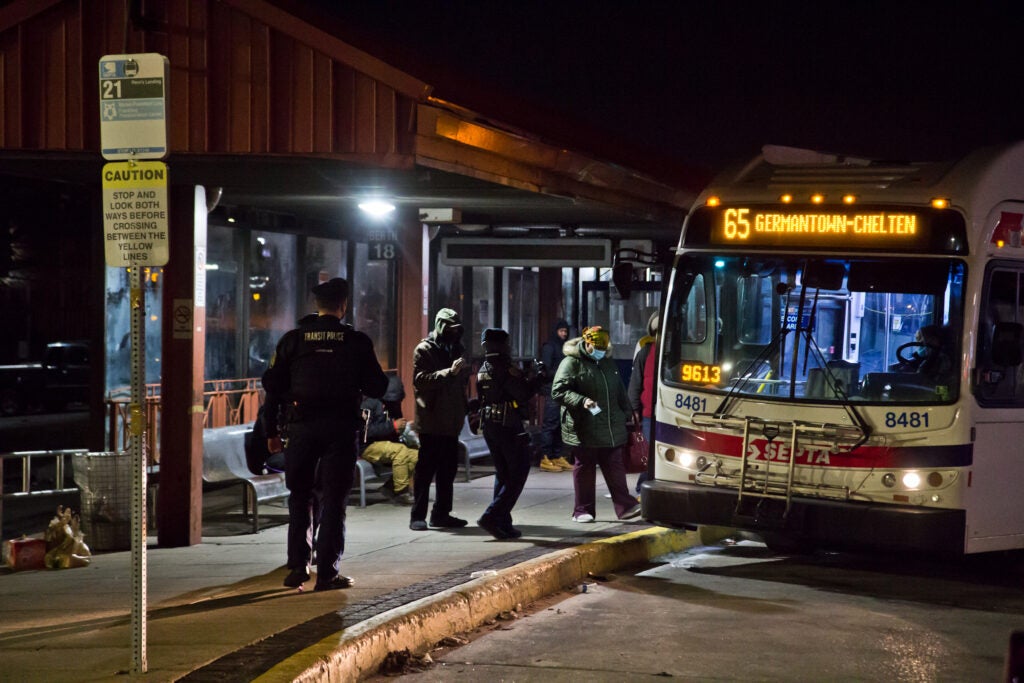
In both cases, gun violence was the driver: SEPTA officials took action after a fully-masked shooter killed a 15-year-old on a bus, and Councilmember Phillips mentioned violence as part of the motivation when proposing his bill.
“The discourse on this subject has been focused on whether it will stop shootings — I’m not going to sit here and pretend that it will,” he said. “But what it will do is make it easier for the police to identify suspects, and make our neighbors feel safer.”
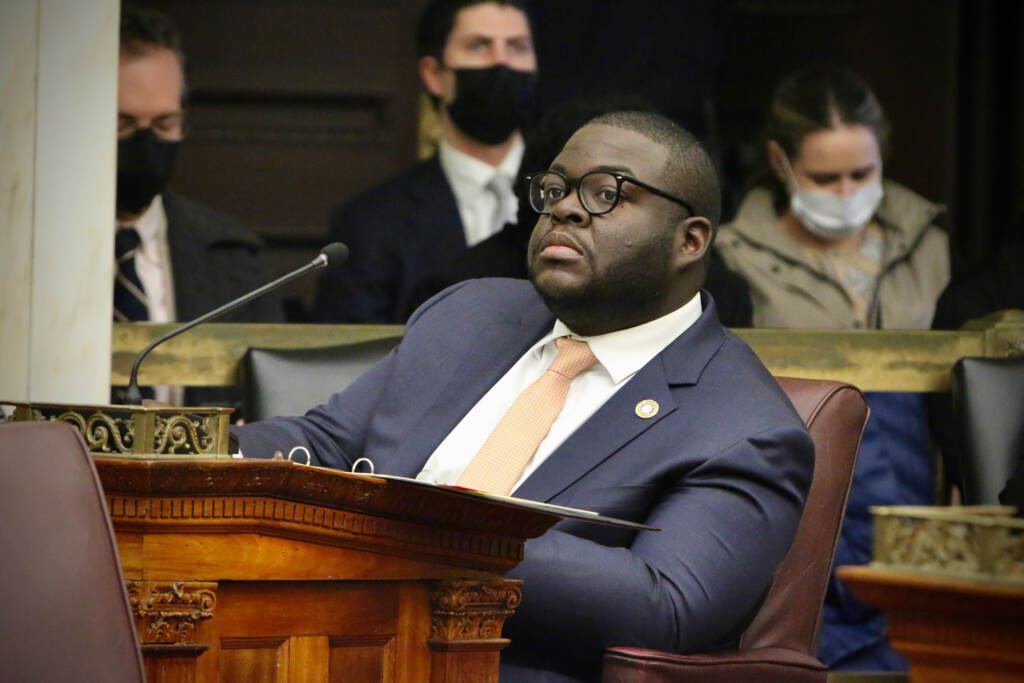
Phillips’ legislation, which will be considered in the fall, is based on similar policies in Virginia, West Virginia, Georgia and Florida. There isn’t a body of academic research on whether these ski mask bans have led to reductions in violent crime.
In April, Washington, D.C. repealed its longstanding ban on full face coverings. The move followed outcry over police officers violating the constitutional rights of young people, said Kristin Henning, a professor at Georgetown Law.
“The wearing of a ski mask or a face covering in and of itself cannot be a lawful basis for a police stop,” she said. “We’re traumatizing Black and brown children who are more likely to come into contact with police as a result.”
The Philadelphia Police Department does not currently have a policy on full face coverings, and declined to comment on how the new legislation, if passed, would affect their protocols.
Why the full face masks?
The head covering in question, also called a “shiesty,” is popular among fans of rapper Pooh Shiesty, according to online magazine HipHopDX. It’s a garment pulled over the head shielding the entire face except for the eyes.
The trend took off in 2020 “on the heels of the pandemic,” said Tio Hardiman, executive director of a national peacemaking organization called Violence Interrupters and an adjunct professor of criminal justice at North Park University.
“People put like a little mask on their face, but next thing you know … it was like a perfect storm for guys that are involved in the criminal element.”
In 2021, Philadelphia Police Department leaders told WHYY News that people wearing face coverings was the “number one obstacle” for homicide investigators trying to identify and arrest suspects.
Councilmember Phillips said the COVID-19 mask mandates normalized being anonymous in public.
“Before the pandemic, no one would have defended wearing ski masks in 90 degree heat,” he said. “There’s simply no reasonable justification for what we’re seeing play out in this city.”
Rates of homicide, gun assault, and vehicle theft rose in major American cities between 2019 and 2022, according to a 2022 report from the Council on Criminal Justice. In Philadelphia, homicides rose during the pandemic but are currently down 18% from this time last year according to the Office of the Controller.
Hardiman called on the state of Illinois to ban ski masks in 2022.
“A lot of politicians nowadays are trying to be politically correct and they don’t want to rock the boat, but it’s time to turn the boat over,” he said. “If you ban the ski masks, a lot of guys would think twice before they go out and commit a brazen crime in front of everybody.”
Not everyone who wears one is about to commit a crime, said 18-year-old Andre Riddick. He says for some young people, it’s about self-protection.
“People gotta wear a mask if they don’t wanna get killed, they don’t wanna be seen,” he said while waiting at the 52nd street SEPTA station.
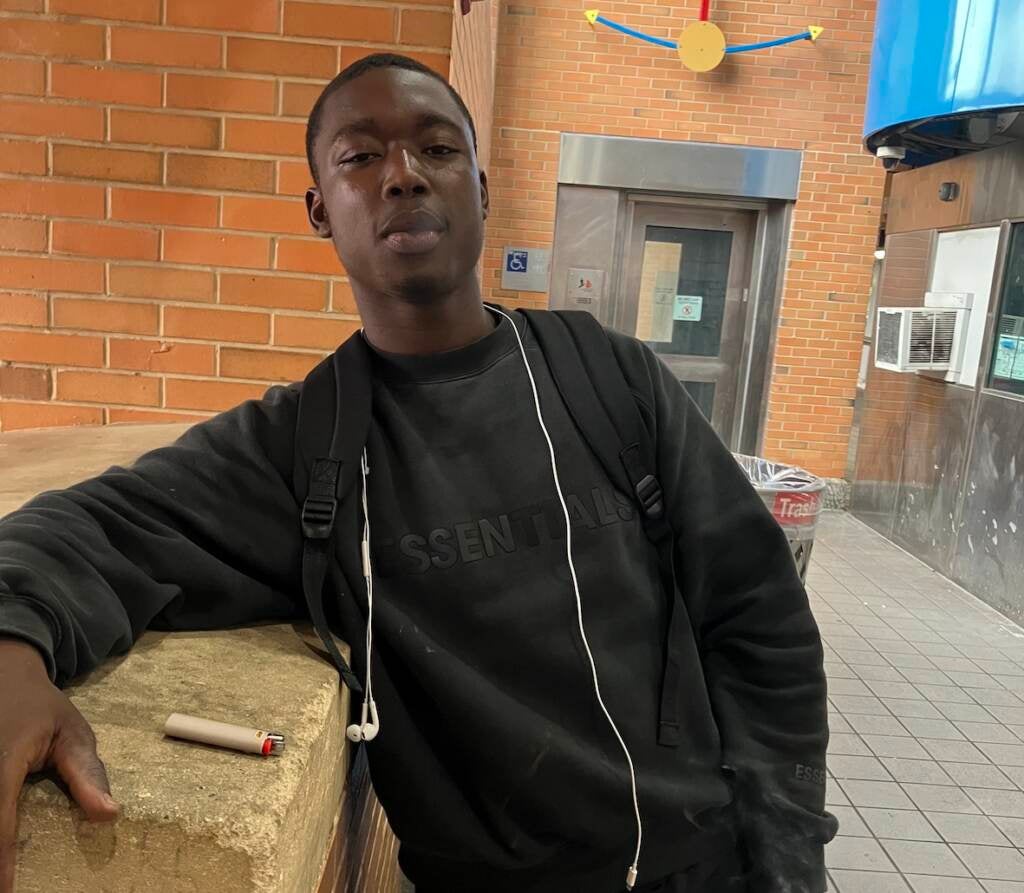
He doesn’t wear a shiesty, but he opposes the new council proposal.
“Sometimes the shiesty make the fit look good,” he said. “Everybody got they own little thing with wearing a mask.”
Henning, at Georgetown law, called the bans a “criminalization of normal adolescent fads and trends.”
“We’re not talking about the neck gaiters or the handkerchiefs that the Proud Boys and the Patriot Front wore to obscure their identity,” she said. “The police are singling out a particular type of face covering popular among urban teens.”
Ski mask bans in other states
Philadelphia’s ban is spurring national conversation – law enforcement officials in Washington, D.C. discussed full face coverings as a crime prevention measure following the SEPTA announcement, despite the recent repeal of their original ban.
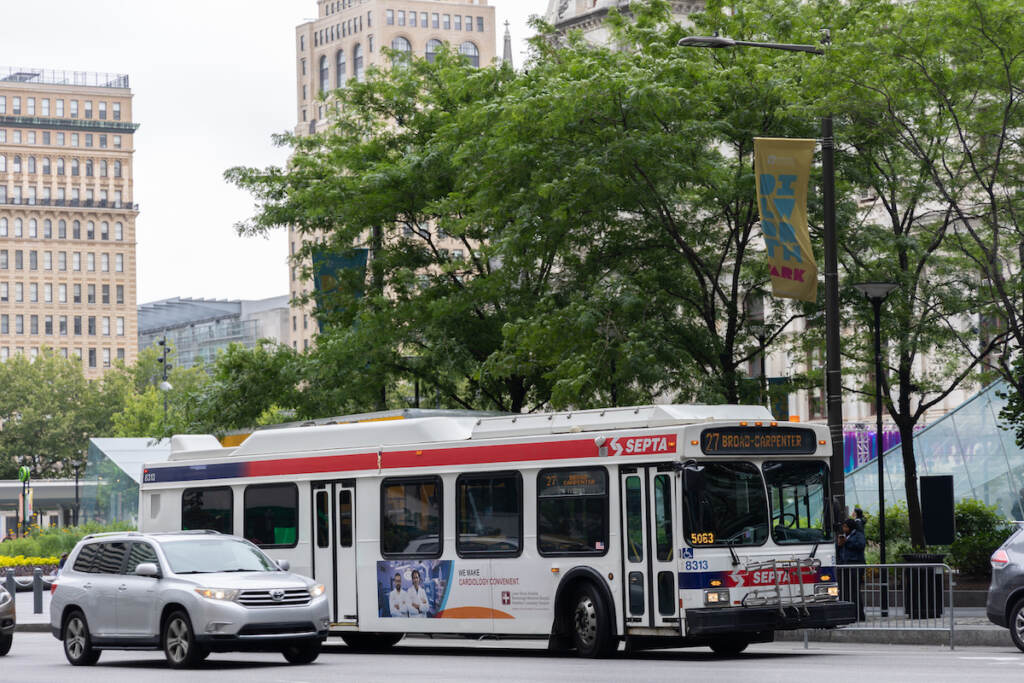
D.C.’s law was created in 1982 as a response to fully masked residents committing anti-Black and anti-Jewish hate crimes, Henning said. Some states’ anti-mask laws date back to the Ku Klux Klan, according to the Southern Poverty Law Center.
“It began to be used as a way to prosecute young, Black kids in Washington, D.C. who were wearing ski masks, and wearing the ski mask in entirely appropriate contexts,” said Henning.
She successfully defended a teen who was stopped and pinned to the ground during an altercation with D.C. police over wearing a ski mask similar to the balaclava, she said.
“It’s disturbing to see other cities begin to think about imposing an anti-mask provision,” she said, noting that policymakers should instead focus on services to help young people such as counseling and vocational training.
States with standing mask bans have had to manage those policies alongside public health-related mask mandates. When COVID-19 hit, Virginia lawmakers put a pause on their existing mask ban to avoid confusion. They reinstated the ban in summer 2021, with clear messaging to the public that it does not prohibit people from wearing surgical masks.
Earlier this year, New York City Mayor Eric Adams called on store owners to ask shoppers to remove their masks, including their surgical masks, before entering in an effort to prevent robberies. It’s a far cry from the era of stores requiring face coverings due to COVID-19.
Adams clarified that shoppers are allowed to put their masks back on once they begin shopping, but some disability rights advocates are already pushing back on behalf of immunocompromised people.
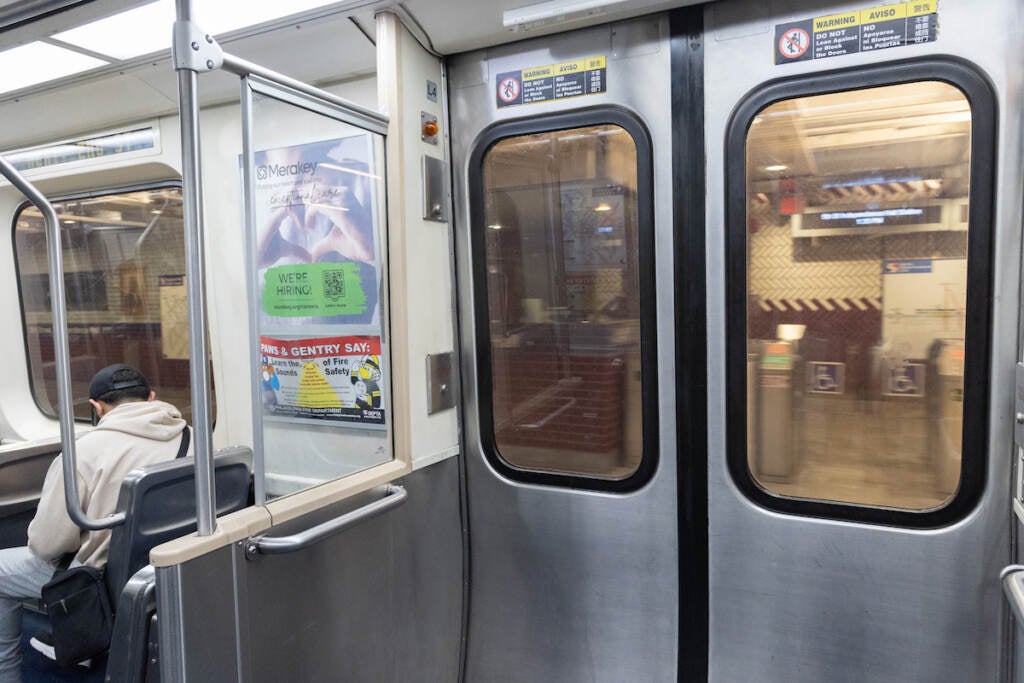
In West Philadelphia, store owners are largely in support of the city ban, said Jabari Jones, executive director of the West Philadelphia Corridor Collaborative. But they’re leaving enforcement to the police, he said.
He said when someone enters wearing a ski mask, a store owner is on edge.
“It’s watching that person, it’s being concerned for their safety, for the safety of their customers and their employees,” he said.
SEPTA announced in late May that it would step up enforcement on transit, but officials did not respond to WHYY News’ questions about what that would entail.
On a recent afternoon at the 52nd street station, SEPTA rider Cameron Willis, 22, said he hasn’t noticed officers stopping people, but he supports the ban.
“Sometimes I feel like they might be up to something,” he said. “What’s the point of having them on? There’s no point.”
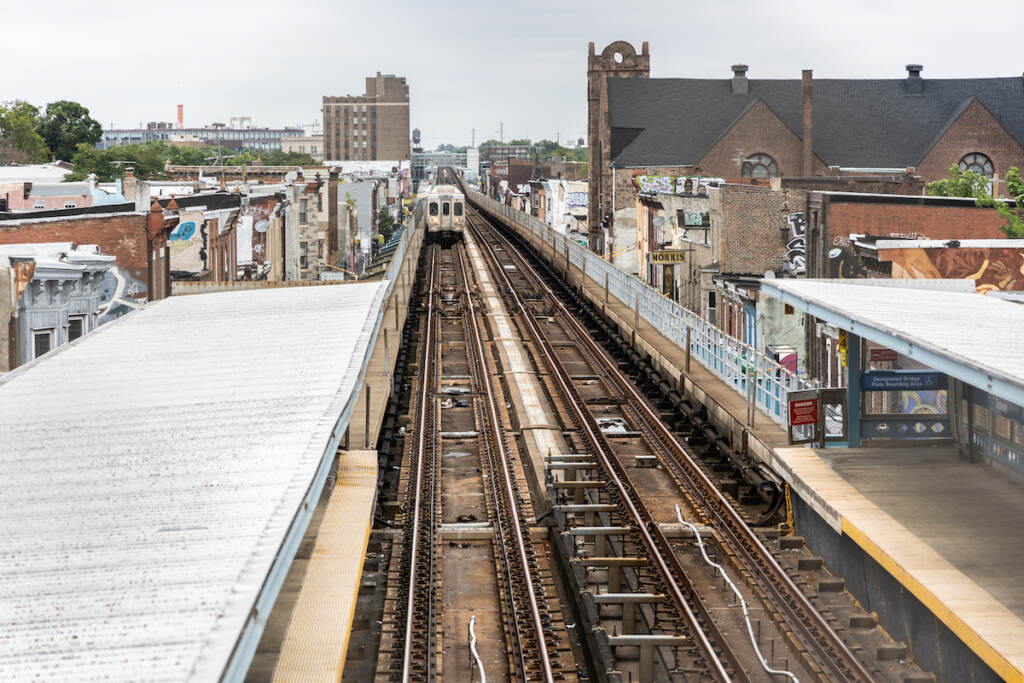
City Council’s proposed legislation is about full face coverings, not surgical masks. It does not apply to people observing religious holidays, wearing safety equipment as part of their jobs, taking part in theatrical productions, or playing winter sports.
Violators could face a $250 fine for disobeying the law and a $2,000 fine for committing a crime while wearing a covering.
Phillips’ bill will be presented at a hearing next fall. The SEPTA policy is already in effect.

Get daily updates from WHYY News!
WHYY is your source for fact-based, in-depth journalism and information. As a nonprofit organization, we rely on financial support from readers like you. Please give today.


